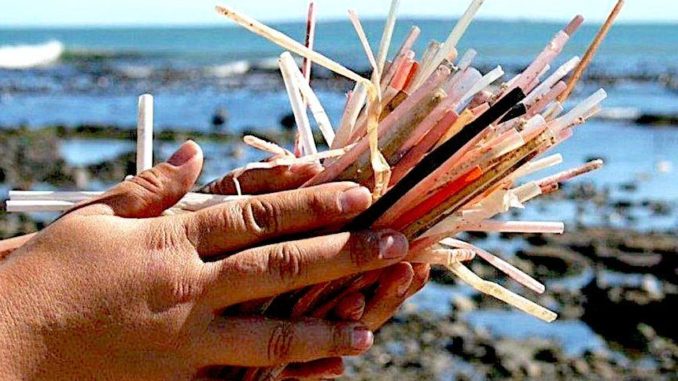
Yesterday, Governor Jerry Brown signed AB 1884, a measure co-authored by Assemblymember Richard Bloom (D–Santa Monica), which would prohibit full-service, dine-in restaurants from offering plastic straws to customers unless requested.
“Plastic Pollution is a colossal problem made up of many individual parts. There is no single solution and every time we pass plastic legislation, we’re putting a bigger dent in this problem,” said Bloom, author of the 2015 landmark California plastic microbead ban that was applied nationally a year later through federal legislation signed by President Obama.
The National Park Service has estimated that more than 500 million single-use plastic straws are used every day in the United States. Scientific research demonstrates that ocean litter, also commonly referred to as “marine debris” is increasing at an alarming rate. Many studies have shown that plastics consistently make up 60 to 80% of all marine debris. By 2050, plastics in the ocean will outweigh fish pound for pound if humanity keeps producing and failing to properly manage plastics at predicted rates.
Fish, seabirds, and sea mammals are being injured and killed by plastic pollution. Floating and migrating plastic debris has been found to travel for thousands of miles. As a result, one study reported that marine plastic pollution has impacted at least 267 species worldwide, including 86% of all turtle species, 44% of all seabird species and 43% of all marine mammal species.
The movement to ban straws and other single-use plastics is growing. In June, the City of Malibu barred the use, distribution, and sale of single-use plastic straws, stirrers, and cutlery in all restaurants and retail stores. Beginning January 1, 2019, the City of Santa Monica will expand that restriction to include plastic plates, trays, cups, and lidded containers. Both cities have led on this issue, passing a plastic bag ban and a polystyrene ban before the state. In the same way that California leads the country on environmental legislation, so do cities like Santa Monica and Malibu. Over the past year, other cities, including Miami Beach and Seattle, have passed bans, with legislation pending in additional jurisdictions, including New York City and Hawaii.
“We have an addiction to single use plastics that if left unaddressed will pose an unimaginable threat to our oceans, to the environment, and to human health. This bill will help us curb our addiction to single use plastics in a sustainable and business-friendly way. ”
Andrew Aldama


Be the first to comment